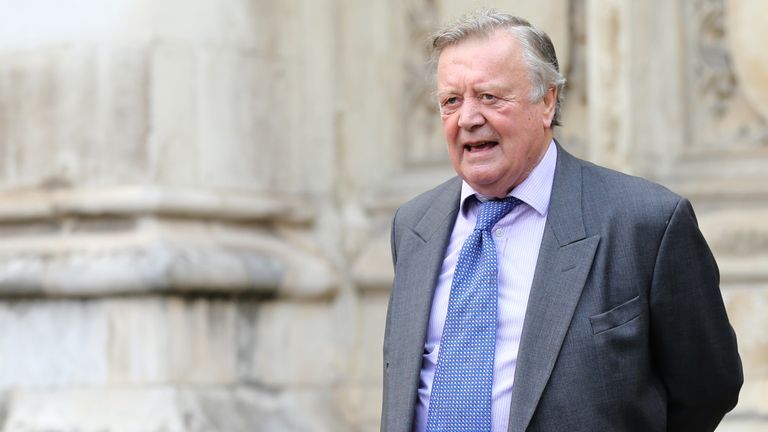Boris Johnson’s controversial Internal Market Bill isn’t just opposed by leading bishops, including Justin Welby. It will also face an unholy battering when it’s debated for the first time in the House of Lords.
The Archbishop of Canterbury is one of 113 peers due to speak at the bill’s two-day second reading debate – when it won’t be defeated, because their lordships don’t do anything so vulgar as defeat bills at second reading – but it will face bitter opposition.
And over the next few months – in what promises to be a fractious committee stage – it will be pulled apart, chewed up and spat out by the overwhelmingly pro-Remain House of Lords, putting peers on a collision course with the Commons and setting up a bruising clash with the prime minister.
Dr Welby, along with his fellow archbishops from Armagh, Wales, York and the Scottish Episcopal Church, claim the bill – which overrides the prime minister’s own EU Withdrawal Agreement – “would create a dangerous precedent”.
They claim: “It is particularly disturbing for all of us who feel a sense of duty and responsibility to the Good Friday (Belfast) Agreement – that international treaty on which peace and stability within and between the UK and Ireland depends.”
There will be plenty of peers who will wholeheartedly agree with that. And not just the fully paid up Remoaners, Brussels lovers and pro-EU bores on the Labour, Liberal Democrat and crossbenches in the House of Lords.
Also due to speak in the second reading debate are hardline Tory Eurosceptics including Michael Howard and Norman Lamont, both of whom have already spoken out strongly against the bill in the Lords.
Lord Howard demanded to know how could the UK “reproach” Russia, China and Iran for their conduct when it was prepared to break international laws.
Also speaking from the Tory benches in the debate will be Howard and Lamont’s old Cambridge contemporary – and Brexit adversary – Kenneth Clarke, new to the Lords and who has only recently made his maiden speech.
Clarke, a former justice secretary and lord chancellor, is one of many lawyers speaking. And while bruiser Ken will join in the political demolition of the bill, his learned friends will no doubt be raising intricate legal objections, as if the Lords chamber were a courtroom.
These eminent lawyers include QCs Alex Carlile, the former terrorism adviser, Edward Garnier, a former Tory solicitor general, Lord Judge (yes, really) a former Lord Chief Justice and Labour’s Baroness Helena Kennedy.
Also due to speak is the former Commons speaker Betty Boothroyd, 91 earlier this month, and the former clerk of the Commons Robert Rogers, now Lord Lisvane, the oracle on all matters procedural.
Tory opposition in the Commons was led by former prime minister Theresa May, who in a powerful speech last month denounced the bill as “reckless” and said it would “damage trust in the UK”.
If the bill were passed, she said, “our reputation as a country that sticks by its word will have been tarnished”. In the vote on the bill at third reading, however, she abstained, rather than vote against it.
:: Subscribe to the All Out Politics podcast on Apple Podcasts, Google Podcasts, Spotify, Spreaker
In the Lords this time, her representative on earth, her former Downing Street chief of staff Gavin Barwell – ennobled in her resignation honours – is also on the list of speakers.
As well as Mrs May, the other four living former prime ministers – Sir John Major, Tony Blair, Gordon Brown and David Cameron – have all spoken out against the bill.
Now it’s the turn of their lordships, who will no doubt inflict the wrath of God on the bill – aided by the UK’s most senior archbishop.


